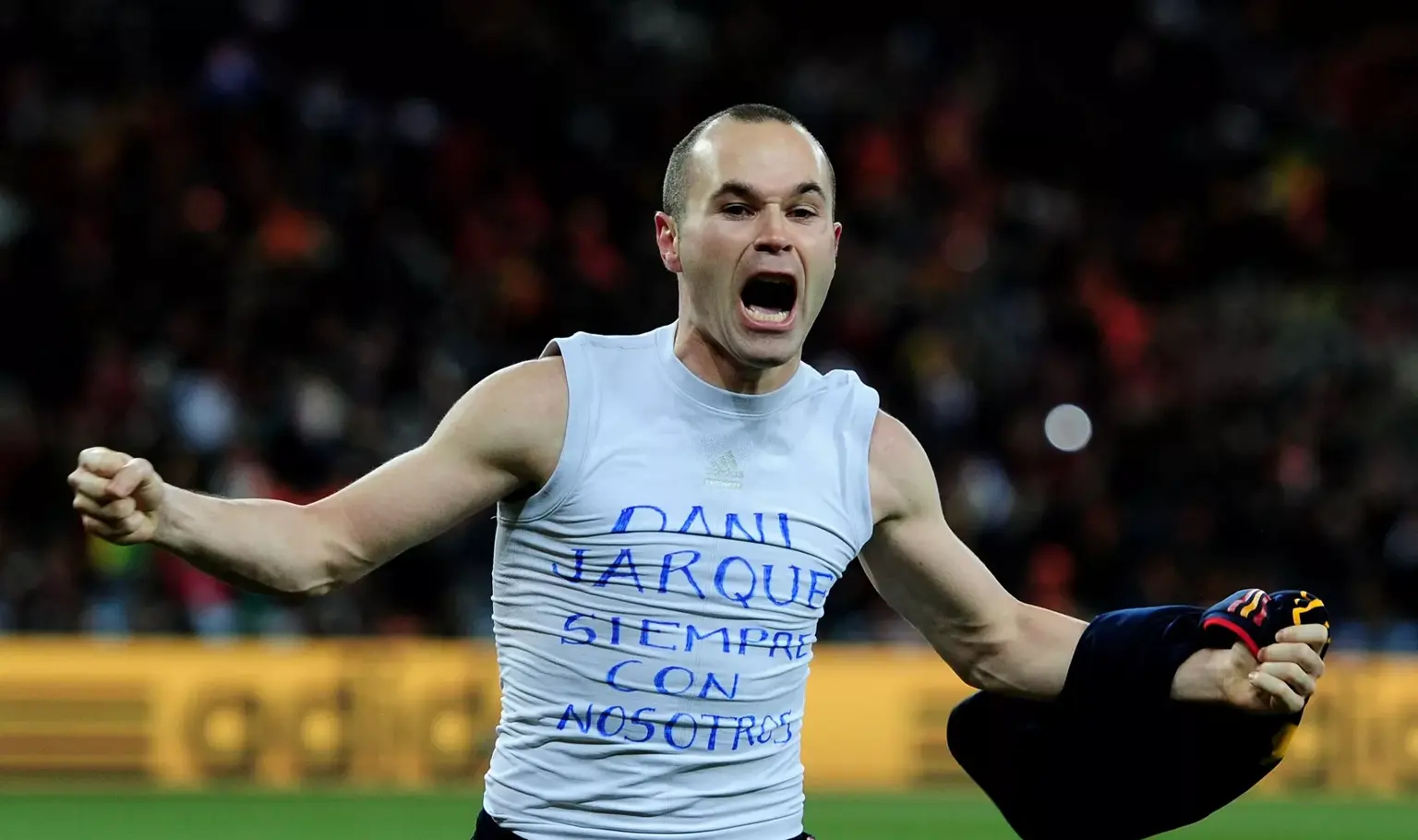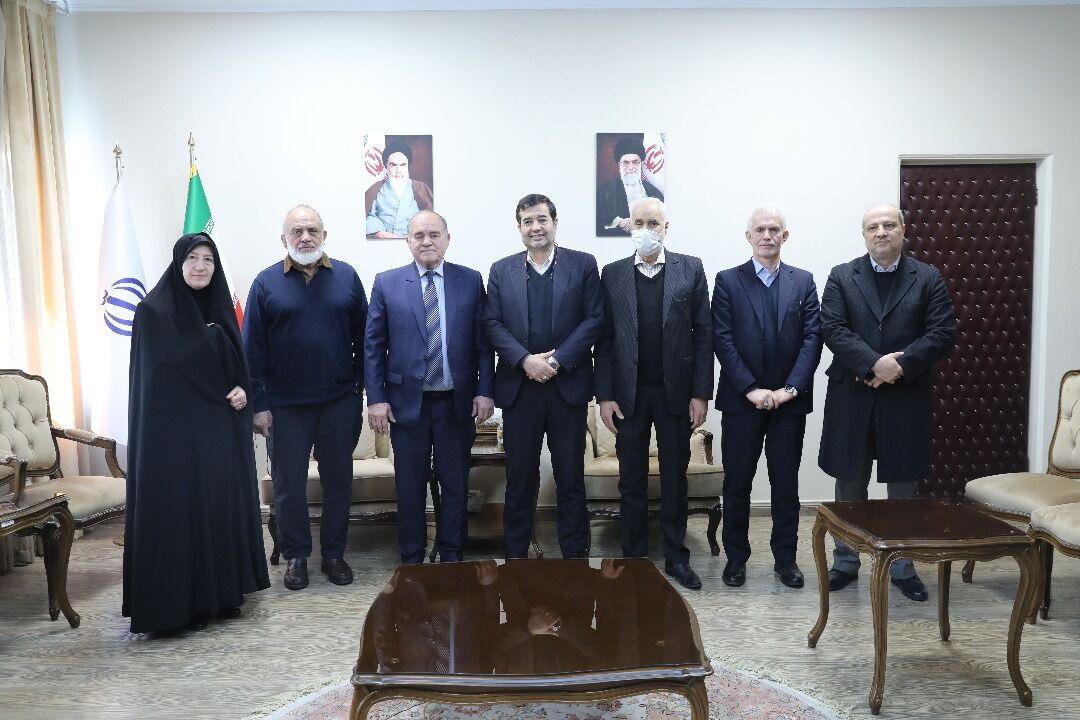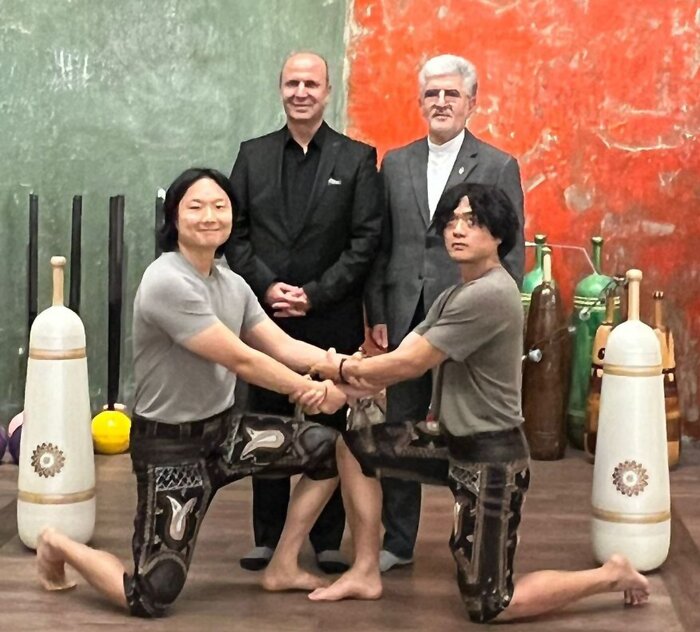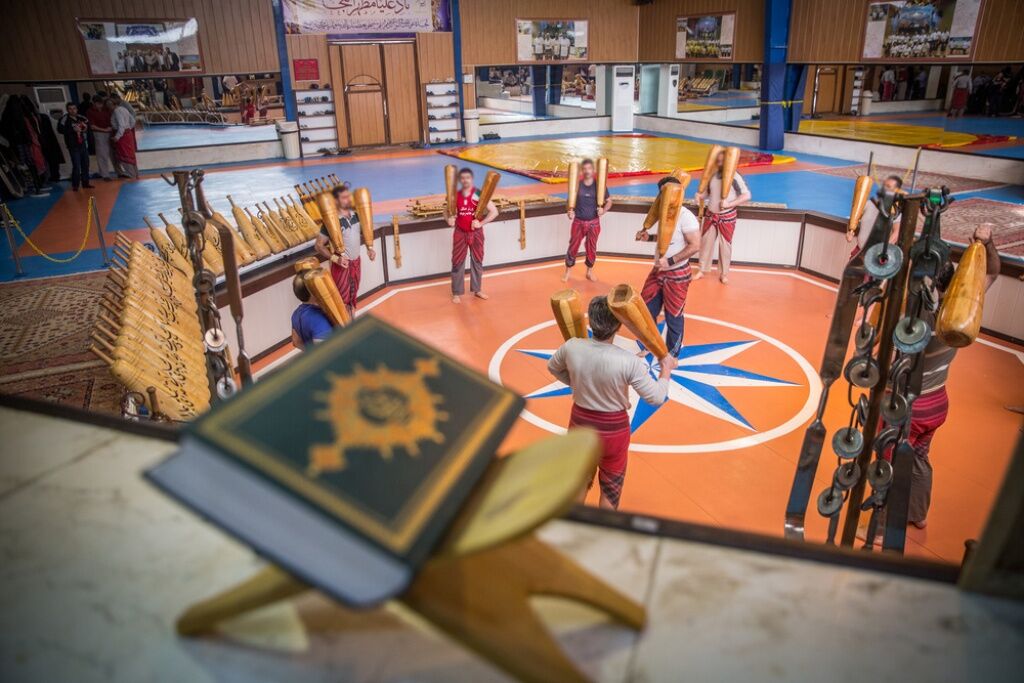Andres Iniesta has announced his retirement from football at the age of 40.
One of the most inventive and elegant midfielders of all time, the 131-times capped Spain international won European and world crowns with both his national team and his beloved Barcelona.
Here, FIFA pays tribute with some unique stories and statistics from Don Andres’ incredible career.
Tears and posters
Fuentealbilla has a population of around 2,000. When a 12-year-old Iniesta left it for Barcelona – a metropolis with 1.6 million inhabitants – he “cried rivers”. It didn’t get much better for him at La Masia. He was innately shy, self-conscious because a skin pigmentation rendered him pale. “I cried myself to sleep every night,” he said. “I wanted to go home but my dad kept talking me into staying.”
Iniesta hung posters of Hollywood actress Catherine Zeta Jones and Barcelona captain Pep Guardiola beside his bunk. When the latter witnessed him play, on the prompting of his brother Pere, he declared, “I’ve seen a 14-year-old who reads the game better than me.” Guardiola sent Iniesta a signed photograph addressed to “the best player I have ever seen”. Uplifted, the kid began to feel less self-conscious and interact more with his colleagues.
First impressions
Out of the blue, Iniesta was summoned to train with Barcelona’s first-team squad in February 2001. Jitters turned to panic when he got lost, but Luis Enrique was sent to find the 16-year-old. His nerves didn’t show once finally out on grass. Guardiola pulled Xavi, 21, aside and told him: “Remember this day – the day you first played with Andres. You’re going to retire me. This lad is going to retire us all.”
International starlet
Iniesta, alongside Fernando Torres, starred at the FIFA U-17 World Cup™ in 2001, though a 4-2 loss to an Argentina side including Pablo Zabaleta, Javier Mascherano and Carlos Tevez saw Spain crash out in the group stage. The Albaceteno was then one of the standout performers at the FIFA U-20 World Cup™ two years later, helping La Roja finish runners-up to Brazil.
No thanks, Madrid
Real Madrid tried to sign Iniesta in 2007. “He was a phenomenon,” said their former director Predrag Mijatovic. “He had a very high release clause, but we really wanted him and were determined to pay it.”
Fortunately for Culés, despite contract talks with Barelona having broken down, he declared: “When I say I want to retire at Barça, I say it with all my heart. This wish comes before everything else.”
Iniesta eventually agreed on a new contract in 2008, with his buy-out clause being hiked from €۶۰ million to €۱۵۰ million. That still didn’t put Madrid off, who went in for him the following year. “I’m very surprised by the speculation because I’ve always been very clear: I want to spend the rest of my career at Barça.”
Ecstasy in Austria
Iniesta was pivotal as Spain won their first UEFA EURO crown in 44 years in 2008. He was the only member of Luis Aragones’s squad to start every game, was named Man of the Match in a semi-final defeat of Russia, and dazzled in the final victory over Germany at the Ernst-Happel-Stadion in Vienna.
The main man
If Iniesta’s contribution to Barcelona’s 2005/06 UEFA Champions League triumph was bit-part, his contribution to their glory three seasons later was instrumental. An improvised, outside-of-the-boot finish from outside the box, deep into stoppage time, snatched them victory over Chelsea in the semi-finals.
“I’m not obsessed with Messi, said Manchester United manager Sir Alex Ferguson before the final. “Iniesta’s the one we have to stop.” Unfortunately for the Scot, his troops couldn’t, as he set up the first and sparkled throughout a 2-0 win in Rome.
Rock bottom
The sudden death of Dani Jarque, his close friend and former Spain youth team-mate, in August 2009 crushed Iniesta. “I fell into a deep depression,” he said. “I was in a really, really bad place.”
His troubles heightened on turf. Iniesta, indeed, was plagued by injuries throughout the season, and suffered a total rupture of the right femoral biceps’ muscle in mid-April, leaving the pitch in tears. Vicente del Bosque, who was set to name Spain’s squad for the FIFA World Cup™ the following month, and Barcelona coach Guardiola both considered it extremely unlikely he would make the plane to South Africa.
Iniesta made a rapid recovery but was only able to see another half-hour of action in Blaugrana before the campaign concluded – one in which he registered just one goal in 40 appearances. Despite that, Del Bosque included him in his squad, admitting it was a “big risk” and that he only took it because it was Iniesta. The player later admitted travelling to the World Cup with his confidence shot.
Durban disaster
Spain were the pre-tournament favourites – a status that was shed at the first hurdle. If being stunned 1-0 by Switzerland wasn’t devastating enough – no side had lost their opener and recovered to win a World Cup – their No6 hitting the Moses Mabhida Stadium turf in agony, after a ferocious Stephan Lichtsteiner challenge, heightened the blow.
“I thought that was it,” said Iniesta. “I didn’t want to do any tests the next day because I was sure I would be on a flight back to Barcelona.”
Iniesta missed the 2-0 win over Honduras and had all but accepted his tournament was over until Spain’s physical therapist scored a fundamental goal in their quest for global glory. “At one point I was working on that spot and while I did, it loosened up,” explained Raul Martinez. Iniesta added: “He pressed the button and it was immediate. I felt the muscle had loosened. I moved and ran freely, which I had not done in a long time. Thanks to him I was back playing like I wanted.”
Career capstone
Spain required victory over a formidable Chile side in their final Group H game to make sure of a place in the knockout phase. Iniesta’s winner secured it, then he excelled as they tiki-taka’d their way to the Soccer City showpiece.
One-hundred-and-sixteen goalless minutes had passed. Iniesta, a left-lying playmaker, uncharacteristically appeared in a right-sided position a striker would usually take up. “You wondered, ‘What is he doing?’ said Xavi laughing.
Iniesta explained: “I knew exactly how I had to shoot and, at the same time, I knew I had to be really quick. Fate made that ball go where it had to.” It was the goal that crowned Spain world champions after 80 years of trying.
The tribute
Iniesta hadn’t planned a homage to his late friend. “Just as I was going out to warm-up for the final, the idea came to me,” he explained. “I asked a member of the delegation to make a t-shirt with a message for Dani on it. I wanted to pay tribute to him.”
When his arrow hit the bottom-left corner, the habitually low-key Iniesta ripped off his jersey, showcasing a t-shirt with the message, ‘Dani Jarque siempre com nosotros’ (Dani Jarque always with us), and screamed hysterically.
“That moment was magical,” said Iniesta, wiping away a tear. “It was something I really wanted to do for Dani, his family. It was the perfect stage, the perfect moment to pay tribute.”
A national idol
Iniesta received multiple standing ovations from opposition fans in the season following South Africa 2010. One was even in the Catalan Derby, with the Espanyol followers indebted to him for seizing Spain football’s most prestigious trophy and for paying homage to their beloved former captain Jarque.
Unplayable
Iniesta was arguably at the peak of his powers at EURO 2012. He was named Man of the Match in three of Spain’s six outings, electrified in a 4-0 thumping of Italy in the final, and was crowned Player of the Tournament.
Bernabeu reception
Following a cosmic exhibition in a 4-0 win at Real Madrid in 2015, Iniesta became the third player to receive a standing ovation from the Bernabeu crowd. The distinction has been bestowed upon Diego Maradona and Ronaldinho in 1983 and 2005 respectively.
- نویسنده : محمد مهدی اسماعیلی رها





























Friday, 30 January , 2026